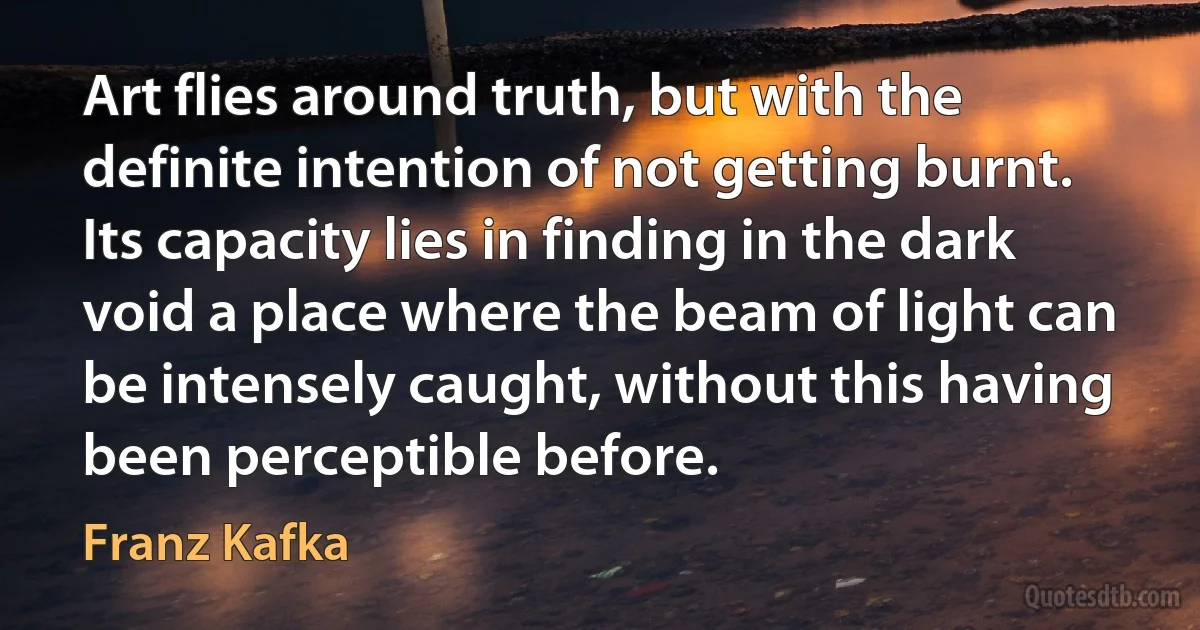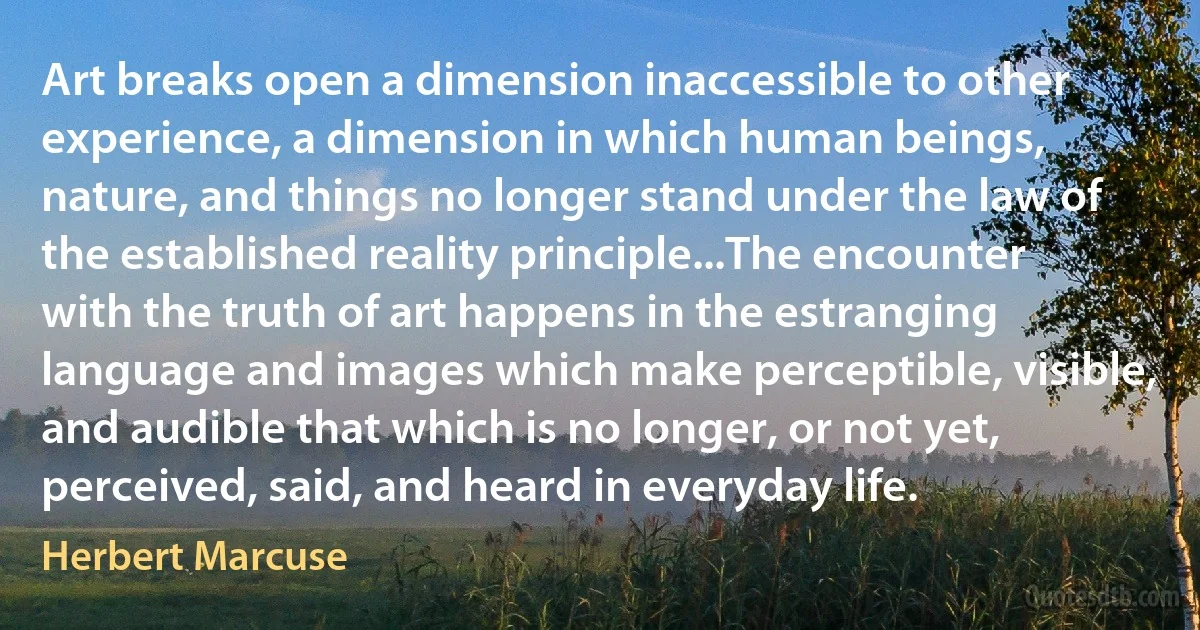Perceptible Quotes - page 2
What "late" generally conveys is rather the sense that something has changed, that things are different, that we have gone through a transformation of the life world which is somehow decisive but incomparable with the older convulsions of modernization and industrialization, less perceptible and dramatic, somehow, but more permanent precisely because more thoroughgoing and all-pervasive.

Fredric Jameson
Several times I have commented that hatred felt long and deeply enough no longer feels like hatred, but more like tradition, economics, religion, what have you. It is when those traditions are challenged, when the entitlement is threatened, when the masks of religion, economics, and so on are pulled away that hate transforms from its more seemingly sophisticated, "normal," chronic state--where those exploited are looked down upon, or despised--to a more acute and obvious manifestation. Hate becomes more perceptible when it is no longer normalized. Another way to say all of this is that if the rhetoric of superiority works to maintain the entitlement, hatred and direct physical force remain underground. But when that rhetoric begins to fail, force and hatred waits in the wings, ready to explode.

Derrick Jensen
A poem, in my opinion, is opposed to a work of science by having, for its immediate object, pleasure, not truth; to romance, by having for its object an indefinite instead of a definite pleasure, being a poem only so far as this object is attained; romance presenting perceptible images with definite, poetry with indefinite sensations, to which end music is an essential, since the comprehension of sweet sound is our most indefinite conception. Music, when combined with a pleasurable idea, is poetry; music without the idea is simply music; the idea without the music is prose from its very definitiveness.

Edgar Allan Poe
Fiction is like a spider's web, attached ever so lightly perhaps, but still attached to life at all four corners. Often the attachment is scarcely perceptible; Shakespeare's plays, for instance, seem to hang there complete by themselves. But when the web is pulled askew, hooked up at the edge, torn in the middle, one remembers that these webs are not spun in midair by incorporeal creatures, but are the work of suffering human beings, and are attached to the grossly material things, like health and money and the houses we live in.

Virginia Woolf
Today this young woman -The Garbo as she is known - is the most glamorous figure in the whole world; there is no one with a more magnetic, romantic or exotic personality, there never has been a film star with so wide an appeal... Greta Garbo is Queen of Hollywood, her salary is fabulous, her word law. She has pointed features in a round face, her mouth is wide and knife-like. Her teeth are large and square and like evenly matched pearls; her eyes are pale, with lashes so long that when she lowers her lids they strike her cheeks; her complexion is of an unearthly whiteness and so delicate that she looks to have one layer of skin less than other people, and the suspicion of a frown is sooner perceptible.

Greta Garbo
An experiment was in progress to ascertain if ordinary culture had attained a stage at which it would appreciate a flood of new thought relating to a science loftier than any dealing exclusively with phenomena perceptible to the physical senses, and in connection with that experiment I was privileged to receive a considerable volume of information relating to the early history of mankind millions of years antedating the range of historical record; also to the concatenation of worlds and the ultimate destinies of our own. Though crude and incomplete, this preliminary sketch of occult science and of the agency through which, though unknown to the multitude, the purpose of creation was being worked out on the physical plane, thrilled the readers of the message all over the civilized world to an extent which gave rise to an organization, the Theosophical Society, which now covers Great Britain, Europe generally, and the United States of America with innumerable branches.

Alfred Percy Sinnett
It is human nature to want to exchange ideas, and I believe that, at bottom, every artist wants no more than to tell the world what he has to say. I have sometimes heard painters say that they paint 'for themselves': but I think they would soon have painted their fill if they lived on a desert island. The primary purpose of all art forms, whether it's music, literature, or the visual arts, is to say something to the outside world; in other words, to make a personal thought, a striking idea, an inner emotion perceptible to other people's senses in such a way that there is no uncertainty about the maker's intentions.

M. C. Escher
[T]he revolt of the Kshatriyas prepares the way for that of the Vaishyas and the Shūdras; and so, from one stage to another, we descend at last to the lowest kind of utilitarianism, the negation of all disinterested knowledge (even of the lowest rank) and of all reality beyond the perceptible domain. This is precisely what one witnesses in our own time, where the Western world has nearly arrived at the final stage of this descent which, like the fall of heavy bodies, keeps accelerating.

René Guénon


